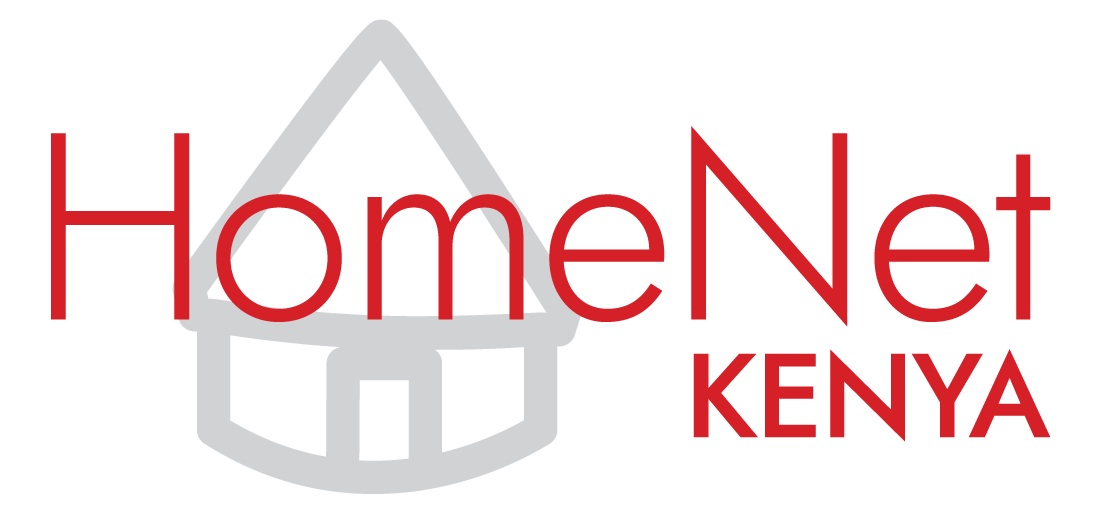Introduction
Homenet Kenya is an Association of homebased worker, member based organizations operating within Kenya. It was officially launched on 10th December,2020 at Sarova Woodlands in Nakuru County, Kenya.
HomeNet Kenya (HNK) has its roots to activities of the Fair-Trade networks; TANFAT, KEFAT, UGAFAT and WFTO-Africa as well as the WIEGO Global Trade Program activities that took place between the year 2008 and 2015.
Since then, and by September,2023 the Kenyan homebased workers network; HomeNet Kenya has grown to cover twelve (12) town-based cluster areas of Kisii, Bungoma, Kisumu, Nairobi, Machakos, Nandi, Elgeyo Marakwet, Baringo, Nakuru, Laikipia, Kitui and Kakamega.
HomeNet Kenya membership comprises of self-help groups (SHG), Community Based Organizations (CBO’S), Cooperative Societies and Marketing/Support Organizations and currently (2023) at about one hundred and nine (109) and growing fast.
Who are HomeBased workers?
Home-based workers (HBWs) are those who do paid work within their homes or the surrounding grounds. They produce goods for local or global value chains and exists two basic categories of home-based workers as follows;
- Self-employed home-based workers assume all the risks of being independent operators. They buy their own raw materials, supplies and equipment, and pay utility and transport costs. They sell their finished goods mainly to local customers but sometimes to international markets. Most do not hire others but may have unpaid family members working with them.
- Sub-contracted home-based workers (called homeworkers) are contracted by individual entrepreneurs or firms, often through an intermediary. They are usually given the raw materials and paid per piece, but cover many costs of production: workplace, equipment, supplies, utilities, and transport. They typically do not sell the finished goods themselves, and often do not know where or for whom the goods will be sold.
Structure
HomeNet Kenya has structured itself to respond to the needs of the HBWs through the recognition of formality taking into cognizance the role of the cluster leaders who have a near reach to HBWs at the grassroots. The HNK constitution provides for two members from each cluster of which at least one must be female to the national committee (NC) who have both the corporate and executive management of HNK. The day to day running of HNK is spearheaded by the national executive committee (NEC) comprising of the chairperson, Secretary and Treasurer together with their assistants inclusive of the coordinator and coopted members.
Homebased Workers Network
HNK works closely with other networks focused on supporting HBWs regionally and globally and is an active participant on the African Regional Platform (ARP) also known as Homenet Africa and a member of HomeNet International (HNI) and collaborate with HomeNet South Asia (HNSA), HomeNet South East Asia (HNSEA), the Latin America network of HBWs (COTRADO-ALAC) and Homenet Eastern Europe & Central Asia (HNEE&CA).
Objectives
HNK members, the National Committee and the National Executive Committee all work jointly towards the realization of the following objectives;
- To raise visibility and gain recognition of HBWs as workers at the county and national government levels.
- To help build and/or strengthen strong, democratic and accountable home-based workers’ organization which protect HBWs rights everywhere.
- To lobby the government and other authorities in order to develop a conducive policy environment that encourages the development of Homebased work legislation and support.
- To co-operate in marketing artisanal products in local, regional and international markets with the aim of improving the livelihoods of member organizations HBWs.
- To encourage co-operation in areas such as training, production, product development and marketing and to mobilize funds/resources.
Activities
The current membership spread across the existing cluster areas are engaged in an ongoing HBWs groups identification, sensitization and recruitment. The same process is supplemented with trainings on what entails homebased work, opportunities in working together and worker rights. It is hoped that all the HBWs groups will eventually come together and use this opportunity to negotiate support from government and development agencies.
Pilot livelihood projects that include kitchen gardens, bee keeping and tree nurseries which directly impact food security as well as income opportunities are ongoing at a few HBWs groups across the clusters. The same is made possible through the membership fees and support from partners.
Capacity building trainings on ‘We are workers, our homes are our work places’ and ‘Social Protection’ using illustrative training manuals developed for home-based workers in Africa.
Membership Process
The membership process to HNK entails filling out a membership application form, review by the application committee and upon approval payment of a one-off membership fee of Kshs. 2,500 and an annual fee of Kshs. 2,500 successively as long as the organization remains a member. Payments are made to the HomeNet Kenya accounts by direct deposit or through the M-PESA Paybill number that comes with the invoice.
